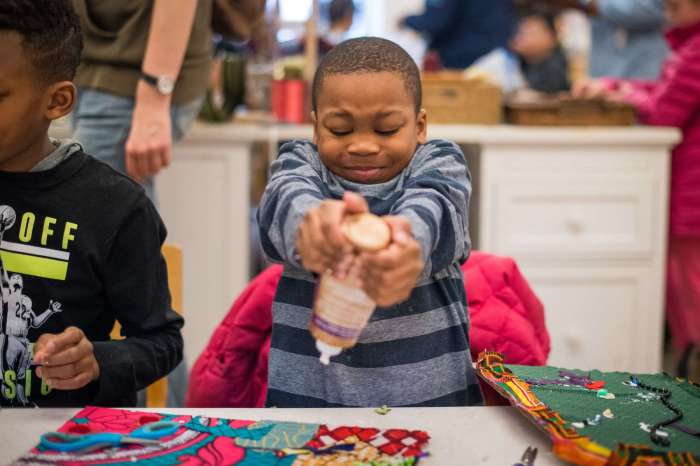Starting in October – OK, September if you really must know – I begin fantasizing about the holidays the way that some people daydream about winning the lottery or meeting their favorite celebrity. This year, I tell myself, it’ll be perfect. We’ll skip all the hoopla. We’ll forgo the copious amounts of presents. We’ll focus on family, friends and memories. It’ll be like a picture print from Currier and Ives.
I make myself a mental to-do list. And then, as the weeks and days pass, it swells to epic proportions. Come December, I am baking eight different kinds of Christmas cookies, torturing my children in an hour-long holiday card photo shoot, and creating a flow chart from wish lists and big ideas.
It’ll be perfect, I still tell myself.
Only now, I am gritting my teeth while I research traditional and laborious Christmas pudding recipes, search crowded stores for the ultimate gifts, field invitations to parties and kids’ activities, and attempt to make my little house replicate a Pottery Barn catalogue cover. All this while nervously watching the days tick by on our life-sized Santa advent calendar (which, by the way, requires a tiny yet magnificent treat in each of its 25 pockets) and telling my kids, “Please be quiet, Mommy’s got a holiday headache.”
I love the holidays, and they start with the best of intentions. But by the end of the season, I realize that all of my big ideas – the ones that would make Christmas “perfect” – were actually counterproductive to creating the season I envisioned.
I’m not alone in this. Parents everywhere are overwhelmed by the million tiny pieces that make up the holiday season. So here’s some advice for a more memorable and realistic holiday season, from experts in reducing stress to parents who’ve been there, done that.
Stress Family, Not Fanfare
“How many people have gotten through Christmas and thought, ‘Thank God that’s over!’” asks Kim John Payne, founding director of the Center for Social Sustainability and creator of the Simplicity Parenting movement, which advocates simplifying certain aspects of family life to allow room for connection, creativity and relaxation.
He’s talked to hundreds of parents whose fondest memories of their own childhood holidays don’t involve recollections of dozens of Hanukkah or Christmas presents, or the best-decorated house on the block.
“No one has ever mentioned anything about stuff,” says Payne. “It’s always been about connection. … You can’t buy traditions. You can’t buy memories.”
Family traditions expert Meg Cox agrees. “We’re sort of trapped in this idea of a 21st-century version of a Victorian holiday. You want your kids to feel blessed and loved and showered with gifts,” says Cox, a former Wall Street Journal reporter and author of The Book of New Family Traditions (Running Press, 2012). Her book focuses on making traditions more meaningful – not just something to cross off your to-do list.
To create a more connected season, the first thing Payne suggests is limiting the use of the word “perfect” to help shift the whole paradigm when it comes to the holidays.
So how do we make these connections amidst the holiday hustle and bustle? By removing activities and events that don’t bring joy or cause too much stress and creating traditions and rituals that are meaningful and satisfying.
Cox began to rethink her own family’s holiday traditions one Christmas Eve years ago when she missed the entire holiday due to severe food poisoning. She wondered why all of the fun had to be crammed into one or two days. Then, she realized, it didn’t. So the Cox family began to create their own traditions – like nightly gatherings by the tree where the family would tell stories about the ornaments that adorned it – and these were enjoyed throughout the season. They eased up on the gift-giving and began exchanging fewer, more meaningful gifts.
“Make it more about the process rather than the pile,” recommends Cox. “Anticipation is such a big deal to kids.”
But What About … ?
It’s not always easy to ditch the past and reinvent your holiday present or future, especially if you’ve grown up with chaotic holidays yourself.
But it is possible. Focus your expectations, be realistic and determine in advance what’s important to you and your family:
• Keep your values and beliefs in mind. “That Macy’s window of perfection perhaps doesn’t fit your moral code,” says Wendie Trubow, M.D., a mother of four and a physician specializing in whole-life care and women’s health. “Look at what’s going to work for you.”
“If family traditions are valuable and bring you joy, then you do them,” she says. If they don’t, then maybe it’s time to come up with some new ones, even if that means having to negotiate with extended family over long-held customs.
• Give yourself permission to say ‘no’ to things that really don’t work for you. “Most requests are not life or death, and that’s what we forget,” Trubow says.
• Be realistic. Look at your calendar. If you decide that it’s pudding-making weekend, stick with that. “Then you don’t try and do 10 other things,” Cox says.
• View traditions primarily as ways to nurture family togetherness. “Family needs to be a refuge. Family needs to be a place you return to,” says Payne. “Celebrations and festivals do that. They’re a really big part of what strengthens the child.”
• Understand that traditions don’t have to be perfect. An activity involving everyone will often be less than perfect, Cox says. But so what if there’s flour all over the kitchen floor and your holiday cookies don’t look like culinary works of art. The memories of making them “are the ones that kids will remember the most,” she says.
“The perfection doesn’t lie in that cookie,” echoes Trubow. “The perfection lies with your children and being with them.”
Ultimately, you should ask yourself what you want your family to take away from the holiday season. What do you want them to remember? A frantic holiday filled with mad dashes to the mall and exhausted, stressed-out parents, or a peaceful, more connected time that focused on togetherness and traditions?
The holidays, Payne says, should strengthen, not weaken your family connection. At the end of the season, if you’re thinking, “Wow, I can’t wait to get back to being a family,” then something might have to give.
“If you get through Christmas feeling a little bit closer to your family,” he says, “that’s a good holiday season.”
Michelle Xiarhos Curran is a freelance writer and mom of three in Newburyport.









